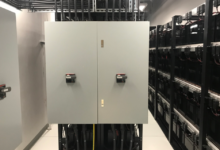Best Practices for Managing and Optimising Cloud Calling Solutions

How do you ensure your Cloud-based telephony solution is efficient in this business environment? What steps can you take to optimise its performance? As more organisations transition to cloud-based telephony, managing these systems effectively is crucial for maintaining seamless communication and driving business success.
Choosing the Right Service Provider
The first step in optimising your cloud-based telephony system is understanding your specific needs. Different providers offer various features, so it’s essential to compare options. Look for a cloud calling provider that offers.
Scalability:
Ensure the provider can grow with your business. This flexibility allows your communication system to adapt as your company expands or changes. A scalable solution eliminates the need for expensive upgrades as your requirements change.
Reliability:
Look for a service with high uptime and minimal disruptions. Consistent service is crucial for maintaining customer trust and ensuring smooth operations. Reliability is a key factor that sets providers apart, so opt for one with a solid history of performance.
Support:
Choose a provider with solid customer support and technical assistance. Responsive support teams can quickly address any issues that arise, minimising downtime. Consider providers that offer 24/7 support to ensure help is available whenever needed.
Optimising Call Quality
Optimising call quality is essential for clear communication. A stable internet connection prevents dropped calls and reduces delays. Implementing Quality of Service (QoS) settings helps prioritise voice traffic, minimising latency and jitter. Frequent software updates keep your system aligned with the latest technologies, ensuring consistently high-quality calls. Clear communication is vital for customer satisfaction.
Leveraging Automation for Efficiency
Leveraging automation in VoIP calling boosts efficiency by handling routine tasks. Automated call routing directs calls to the correct department quickly. Voicemail transcription turns messages into text for easy review. Automated follow-up scheduling ensures no customer inquiry is missed. This keeps customer interactions smooth and timely. As a result, your team can focus on more important tasks without getting bogged down by repetitive duties.
Monitoring Performance and Analytics
Monitoring performance is critical to optimising your cloud-based telephony system. Regularly check call analytics to spot issues. Longer call durations may signal complex problems or inefficiencies. High missed call rates could mean staffing gaps or poor call routing. Customer feedback also highlights areas for improvement, helping to boost satisfaction.
Read also Top Signs Your Carpet Needs Professional Cleaning
Implementing Security Measures
Robust security measures are essential to safeguard your VoIP calling system from potential threats. Start with encryption to secure calls and data from unauthorised access. Multi-factor authentication (MFA) adds extra protection by requiring multiple verification steps. Regularly updating passwords with complex combinations further reduces the risk of breaches. These steps help keep your system safe.
Training Your Team
Training your team is essential for getting the most out of your VoIP calling system. Regular sessions help everyone become familiar with the system’s features. Focus on best practices and basic troubleshooting skills. This approach improves efficiency and boosts customer satisfaction. Short, frequent training keeps skills sharp. It also helps your team adapt to any updates or changes. Well-trained staff can handle issues quickly, minimising downtime.
Regular System Audits
Regular system audits are crucial for keeping your VoIP calling solution efficient. They help you spot recurring issues and prevent disruptions. Audits also check if you’re using all the features effectively. Lastly, they ensure your plan remains cost-effective and meets your business needs. Regular reviews can highlight underused tools that could enhance productivity. They also provide an opportunity to reassess your provider’s performance. Consistent audits keep your system aligned with your company’s goals.
Managing and optimising your cloud calling solution is essential for maintaining smooth and effective communication. By following these best practices—choosing the right provider, optimising call quality, leveraging automation, monitoring performance, implementing security measures, training your team, conducting audits, and staying ahead of trends—you can ensure your VoIP calling system supports your business’s needs now and in the future.





